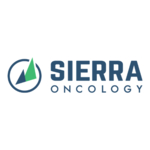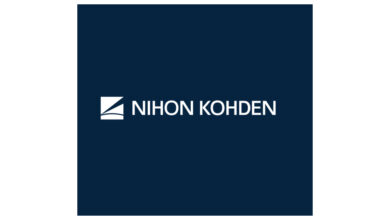Sierra Oncology Reports Baseline Ferritin Differentially Predicts Week 24 Transfusion Independence Response in Myelofibrosis Patients

ATLANTA–(BUSINESS WIRE)–Sierra Oncology, Inc. (NASDAQ: SRRA), a late-stage biopharmaceutical company on a mission to deliver targeted therapies that treat rare forms of cancer, today announced data from new retrospective analyses of the Phase 3 SIMPLIFY studies demonstrate baseline ferritin differentially predicts Week 24 Transfusion Independence Response for momelotinib and ruxolitinib in patients with myelofibrosis. The data were presented at the 63rd American Society of Hematology (ASH) Annual Meeting being held virtually and in Atlanta, GA December 11-14, 2021.
Baseline Serum Ferritin Differentially Predicts W24 Transfusion Independence Response for Momelotinib and Ruxolitinib in Patients with Myelofibrosis
Myelofibrosis is characterized by the presentation of constitutional symptoms, splenomegaly and anemia, with the degree of anemia and transfusion dependence being among the most important predictors of overall survival. Dr. Stephen Oh, MD, PhD, Washington University School of Medicine in St. Louis and Siteman Cancer Center, noted how the analyses identified pre-treatment serum ferritin level as the most predictive biomarker for the treatment effect of momelotinib versus ruxolitinib on Week 24 Transfusion Independence Response (TI-R) in the SIMPLIFY-1 (JAK inhibitor-naïve) and SIMPLIFY-2 (JAK-inhibitor experienced) studies.
Key results for SIMPLIFY-1 include:
- Ruxolitinib was associated with a significantly greater increase in ferritin levels over time compared with momelotinib, irrespective of baseline ferritin, highlighting the differential treatment impact on serum ferritin between the two agents
- Baseline hemoglobin (Hgb), an indicator of anemic status, differentially predicted Week 24 TI-R in patients randomized to momelotinib or ruxolitinib
- Baseline ferritin also differentially predicted Week 24 TI-R in patients randomized to momelotinib or ruxolitinib
- For patients with baseline ferritin between 90-650 ng/mL, momelotinib-treated patients had a higher Week 24 TI-R rate than ruxolitinib-treated patients [72% vs. 38%, OR 4.21 (95% CI: 2.24, 7.89); p=0.0439]
- In patients with baseline Hgb <12 g/dL, baseline ferritin levels provided additional, differential predictive value for Week 24 TI-R
- The differential treatment effect between momelotinib and ruxolitinib was highest for anemic patients with baseline ferritin between 90-650 ng/ml
- No correlation was observed between baseline ferritin and Week 24 splenic or symptom response rates
Findings from SIMPLIFY-1 were independently confirmed in the JAK inhibitor experienced setting of the SIMPLIFY-2 study, where Hgb and ferritin each differentially predicted Week 24 TI-R in patients randomized to momelotinib or best available therapy (BAT; 88.5% ruxolitinib), and baseline ferritin predicted additional, differential predictive value for Week 24 TI-R in patients with Hgb <12 g/dL. For patients with baseline ferritin between 90-650 ng/mL, momelotinib-treated patients had higher Week 24 TI-R than those treated with BAT [53% vs 22%, OR 2.27 (95% CI: 1.01,12.77); p=0.03099].
These data suggest that ferritin may be useful in treatment decision making in myelofibrosis, especially in patients with anemia and ferritin 90-650 ng/mL, in which momelotinib demonstrates a greater TI effect than ruxolitinib. Future evaluation may be made in forthcoming clinical trials to further examine the correlation between ferritin and TI response.
About Momelotinib
Momelotinib is a selective and orally bioavailable JAK1, JAK2 and ACVR1/ALK2 inhibitor currently under investigation for the treatment of myelofibrosis. Myelofibrosis results from dysregulated JAK-STAT signaling and is characterized by constitutional symptoms, splenomegaly (enlarged spleen) and progressive anemia.
Sierra Oncology is currently awaiting topline results of the MOMENTUM clinical trial, a global, randomized, double-blind Phase 3 study evaluating momelotinib for the treatment of symptomatic and anemic myelofibrosis patients. Top-line data are anticipated by February 2022. Assuming positive data, the company plans to file a New Drug Application with the US Food & Drug Administration (FDA) in the second quarter of 2022. The FDA has granted Fast Track designation for momelotinib.
About Sierra Oncology
Sierra Oncology is a late-stage biopharmaceutical company on a quest to deliver targeted therapies that treat rare forms of cancer. We harness our deep scientific expertise to identify compounds that target the root cause of disease to advance targeted therapies with assets on the leading edge of cancer biology. Our team takes an evidence-based approach to understand the limitations of current treatments and explore new ways to change the cancer treatment paradigm. Together we are transforming promise into patient impact.
For more information, visit www.SierraOncology.com.
Cautionary Note on Forward-Looking Statements
This press release contains forward-looking statements within the meaning of the “safe harbor” provisions of the Private Securities Litigation Reform Act of 1995, including, but not limited to, statements regarding the suggestion that pre-treatment serum ferritin level may be an important biomarker for treatment choice in myelofibrosis, the expected timing for top-line data in the MOMENTUM clinical trial and the timing of filing a New Drug Application with the US Food & Drug Administration (FDA). All statements other than statements of historical fact are statements that could be deemed forward-looking statements. These statements are based on management’s current expectations and beliefs and are subject to a number of risks, uncertainties and assumptions that could cause actual results to differ materially from those described in the forward-looking statements. Such forward-looking statements are subject to risks and uncertainties, including, among others, the risk that Sierra Oncology may not be able to successfully develop, obtain regulatory approval for and commercialize momelotinib or experience significant delays in doing so, Sierra Oncology may not be able to demonstrate acceptable safety and efficacy of momelotinib, the risk that disruptions and impacts of COVID-19 will be significant and lengthy, Sierra Oncology’s ability to continue as a going concern, Sierra Oncology’s cash resources may be insufficient to fund its current operating plans and it may be unable to raise additional capital when needed, Sierra Oncology may be unable to acquire additional assets to build a pipeline of additional product candidates, Sierra Oncology’s third-party manufacturers may cause its supply of materials to become limited or interrupted or fail to be of satisfactory quantity or quality, Sierra Oncology may be unable to obtain and enforce intellectual property protection for its technologies and momelotinib and the other factors described under the heading “Risk Factors” set forth in Sierra Oncology’s filings with the Securities and Exchange Commission from time to time. Sierra Oncology undertakes no obligation to update the forward-looking statements contained herein or to reflect events or circumstances occurring after the date hereof, other than as may be required by applicable law.
Contacts
For Further Information:
Investor Contact
DeDe Sheel
415.732.9828
[email protected]
Media Contact
Lauren Musto
615.351.7777
[email protected]



